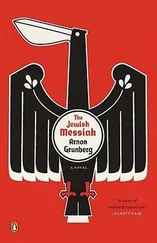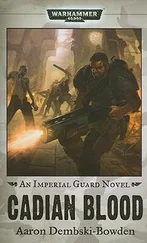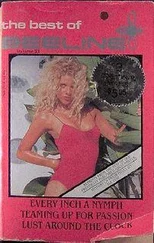She is walking with him. She wants him pillow, he feels it. He knows.
He pushes her away. 'Go away,' he calls. 'Touch Me, dirty wife.'
She picks its glass. She pays at. 'Who are we?' she asks. "Now that we have discussed it, who we are that they hate us? Who are we, Jörgen? What are we actually doing?'
She is coming toward him, the glass in her hand.
'You need there is ice in do,' he says. 'Rum-cola without ice cream is not to drink. You have no style?'
They saves her arms around him. He pushes its not road. He has the power not.
'You Know Who we are?' she whispers in his ear. And also insert them her tongue in his ear. 'You know what we are, with the two of us we? We are broken.' She speaks the word from as something geils and fijns, as though it were incredibly exciting is to break. The most beautiful and best thing in the world. Something that is usually reserved for models and movie stars. Broken.
'but you must to tell anyone. It is our secret, you agreed? No one should know. We only know.' She remains but a whisper. Even though there is no one else in the kitchen. Then let them finally.
Ship's steward makes his ear dry with his handkerchief.
He picks up the dish with sardines. 'They must now be eaten, they should be eaten warm,' he says, more against themselves than against the wife.
In the living room he calls as a poor imitator of a 'sardines market Koopman:, so fresh you get in Portugal not.'
The guests are afraid for the sardines, or they do not pull out more. With difficulty he wears his fish.
The boy with the name of one syllable notes a. 'It is happiness,' says ship's steward noting the fish, 'it is pure luck.'
He looks at how the boy eating.
And if the boy have second sardine in the mouth, says: 'Contact me ship's steward forgive me, but i forgot your name.'
'Bas.' He talks with full mouth. But 'Bass' is a name you even with full foot well can say.
'Bas,' reiterates ship's steward. 'Is a fun party, Bas?'
'Yes,' says the boy, 'there are also of that tasty snacks.'
Ship's steward nods. 'I have the fish this morning in the morning at the hotel and catering industry Dealers Ven in Diemen purchased. That you can taste.'
Also they stare out to each other, the old and the young man, they look at each other, skeptical though what they will now say. The old man thinks of catering Dealers Ven.
Than the call to conclude, says: 'on ship's steward ven they have the best fish, Bas. Remember that. Do take advantage of it.'
Without awaiting a reply, he runs to Tirza. They still speak always with lady Veldkamp, like lady Field Camp is her best friend. In fact you not Veldkamp lady. A MS is the. He does not understand why they do not themselves against him has said: 'I am lady Veldkamp not, I am Mrs Field Camp.'
'De last is for you, Tirza.' He keeps the dish among its nose so they can smell how fresh they are.
'No, PAP," she says, 'I have still not hungry.'
Mohammed Atta stands behind Tirza. He does not participate in the call. While she speaks, he plays with the fingers of her right hand. Ship's steward sees a few seconds. He is an abomination.
In the kitchen to eat the last sardine yourself.
The wife is still at the worktop, exactly as he has left behind her.
'they found the nice?' she wants to know.
He remains silent. He loves the cup under the tap.
'What are we going to do about it?' he asks.
'Which?'
'Which? Which? You listen when I speak?'
'I listen. I listen today are better than in the past. You also says more interesting things than in the past. To us?'
He dries his hands off.
'to us. No, not for us. I am ready with us. What are we to do Mohammed Atta? How much you hate her may have, it is your child. It is my Tirza. But it is also your child.'
They mixt still what cola with rum.
"Create your yet not so crowded," she says. 'It is a whim. Tirza is still not ripe for a real boyfriend. She is still far too much with himself. It is simply that we have very sweet for Mohammed Atta. How do we have for him, the sooner he has disappeared.'
He shakes his head. Sweet for Mohammed Atta, only the wife can think of something like this.
The Racket in his head is stronger. He goes to the top. He now has to focus on to the rest of the Party, on the snacks, on Mohammed Atta, on the guests.
In the bedroom opens the balcony doors.
Ship's steward takes a deep breath. It is twenty past eleven, he sees on his watch. The feast is nearing its destination. As between twelve and a half are the two half celebrations on their height point he recalls of the parties that the wife previously organised. Even when Tirza was a few months old. It made its nothing. The celebrations went for, its celebrations went for.
He looks at the garden, the houses, the lawn of the neighbors. He thinks of Tirza's travel, that they are going to create together with Atta. Atta, so that is her boyfriend. Atta, so that is the man to whom they think it is better to have him than. He tries to propose those months in the large and empty house. For whom he will buy wine, for whom he will do our shopping? For whom he will in the kitchen? He remembers her illness, as in the case of a person who was a time when the Hofmeesters lived in the house. A uninvited guests. First he had had nothing. The wife of course not. He brought Tirza to its celloles, when an older lady who with an eye diease understaffed, he brought her to the swimming pool. They swam very good they swam competitions, she had champion can be if they had gone. He took her to the pool and in the evening he read her for from the world literature, especially the Russians. Tolstoy that his own art their petty because he sees her as insignificant, if a fun that does not contribute to the happiness of the people that he found Nice. So Nice, that he was not tired from Tolstoy for reading. Loved it, the man who made his own family unhappy, which makes his own wife crazy, which specify his talent to the happiness of the people after hunting.
And all that time he had had nothing in the holes. Perhaps he wanted nothing in the holes. Until he was called by Tirza's classes teacher Mrs brunt.
The wife was in her studio, they had a studio, God should know what they uitspookte. What did they actually at that time except for a lie? He had also met a woman who said: 'I sleep now much, because it will be the children and will no longer be.' The wife had done otherwise, which was going to sleep after the children.
'Maybe,' said Mrs of mining by the telephone, 'want you and your wife have come to talk about Tirza.'
'I meet you only,' he said. 'My woman has the pressure.'
He made an appointment for Friday afternoon half-five. It meant that he slightly earlier of the publisher had to leave, but on friday afternoon there was at that time still bubbled mainly.
To ten about four that Friday afternoon he did the manuscripts that he was planning to go that weekend reading in his briefcase and he peddled my way to the South.
For the Vossius Gymnasium he made his bike with a lamppost and he wondered why we wanted to talk with him, what Tirza could have done.
He ran through the school with the briefcase against itself. There was almost no one more. Uneasy he felt, as always when he the role of father in the public had to fulfill. He played that role ideally as no one could see him.
At the coffee machine were three boys. 'Please excuse me, I find the local of Mrs Of Excavating,' said ship's steward. A small and rather dingy boy with an earring pointed out to him that he could come and while he walked up to the first floor, the briefcase still pressed against, he realized that he was reviewed and that he was ridiculous. Not ridiculous as man, it was to live with. But ridiculous as a father. A ridiculous father, that he was. Someone also always a deep unease had felt when he was in the school yard, when his children are still on the Amsterdam Montessori School, and he is in the middle of the other fathers and mothers had waited to retrieve them. Other parents chatted with each other, knew each other, wanted to get to know each other better. But he had to be hidden behind a tree. And if he is a baby heard Tirza declare: 'Look, there is your father', he had the tendency to look behind them, as if they had about someone.
Читать дальше












